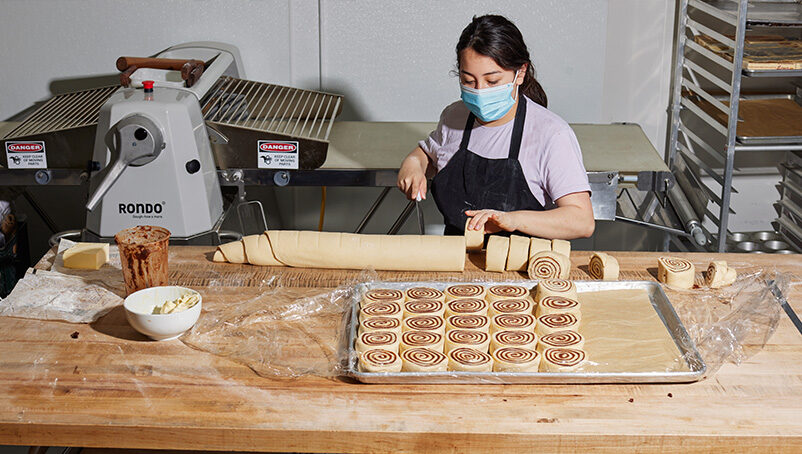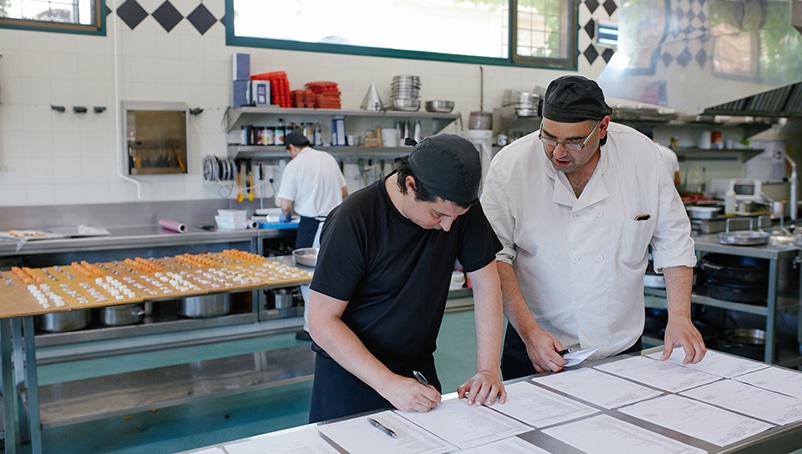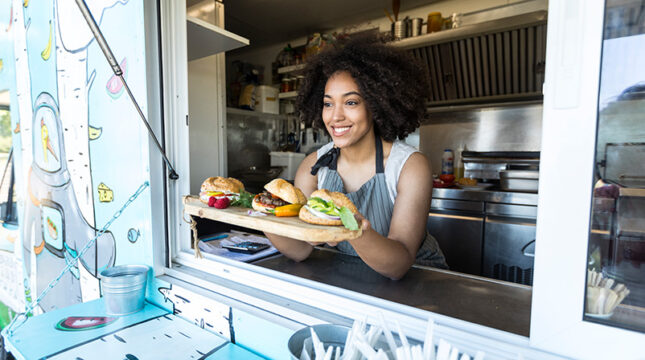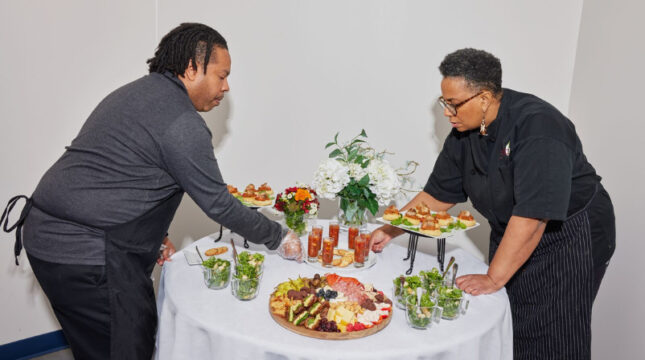What is a commercial kitchen?
Improperly stored or prepared food can lead to widespread foodborne illness. Commercial kitchens, also called commissary kitchens, undergo licensing and local health department inspections for safer food preparation and storage.
Commercial kitchens also give culinary professionals access to commercial-grade equipment for large-batch cooking, storing and packaging.
In general, you can rent two types of commercial kitchens:
Shared kitchens give you space and time to cook and prep, but you don’t get exclusive access. You’ll need to sign up for a time slot ahead of time to use the kitchen, and things like oven time or shelving in the walk-in refrigerator or freezer will be limited.
Private kitchens mean that you’re the only person who uses it for as long as you rent — no sharing required. The tradeoff is that you pay more for more access.
Why rent a commercial kitchen space?
If it’s not a requirement for a food business in your area, renting a commercial kitchen can be convenient. But before you add another expense to your balance sheet, weigh the pros and cons.
Advantages of renting a commercial kitchen
- Flexibility. You choose the number of hours you use the kitchen each week or month. If you don’t like the space, you can rent somewhere new.
- Low overhead. You pay the rental fee and get access to commercial-grade appliances and equipment without buying them. The owner of the kitchen takes care of expenses like utilities, building maintenance, pest control and more.
- Compliance. Commercial kitchens meet local safety and health regulations for preparing and storing food for the public.
- Business networking. If you rent a shared space, you become part of a community of culinary professionals. Everyone benefits from shared experience and advice.
Disadvantages of renting a commercial kitchen
- Scheduling. If plans change or you need fast access to the kitchen outside of your regular day and time, scheduling can be tricky in a shared space.
- You get what you get. Access to commercial-grade equipment and appliances is great. But you’re stuck with the make, model and condition of what the facility has. If equipment is broken or needs repair, you might not know until you show up.
- Your capacity is limited. Unless you rent a private kitchen, you share the space with other professionals who might not be as diligent as you about cleaning. You could walk into a messy workspace of dirty dishes, clogged sinks or worse. And you could quickly max out your pantry or cold storage to save room for others.
What’s required to rent a commercial kitchen?
Check with your local health department to find out what you need to rent a commercial kitchen. Requirements may vary based on where you’re located, but in general, you might need:
- A food handlers card. This certification shows local health departments you know how to handle and serve food to the public safely. To get a food handlers card, you must complete a food safety course and pass an exam.
- A Certificate of insurance (COI). Your certificate of insurance shows what type of business insurance you carry and your policy limits. For example, at NEXT, you can access your live COI and share it from your account whenever you want. Some kitchens may want you to list them as an additional insured. You can add additional insureds to your COI any time at no cost.
- A business license. Nearly all businesses in the United States need a business license to operate legally.
How can I rent a commercial kitchen near me?
If you’re interested in renting a commercial kitchen space nearby, start by asking your colleagues and acquaintances in the local food service industry if they have recommendations.
Also consider non-traditional options, such as restaurants, cooking schools, churches, schools and retirement homes. Many have licensed commercial kitchens they may rent during off-hours.
You could also check online sites like The Kitchen Door and Kitchen for Rent to look for listings in your area.
Once you find a space, evaluate the following to make sure it meets your needs:
- Size. All kitchens are not the same size. Be sure the one you choose has enough storage space and the equipment and appliances you need for the type of food prep you do.
- Appliances. Ask about all available kitchen equipment before you sign a contract. And don’t forget to find out what supplies you’re allowed to bring with you.
- Storage. If you don’t want to lug every single ingredient back and forth each day, you’ll need a place to store your stuff. Find out how much cold and dry storage the kitchen has.
- Inspection history. It’s hard to run a food business if your kitchen gets shut down by the health department. Ask to see the inspection history when researching potential commercial kitchen rentals.
- Waste removal. Your trash, food waste and cooking oil have to go somewhere. Find out if you’re responsible for getting rid of them or if the kitchen can take care of them.
- Availability. Some shared kitchens book up quickly. If there’s no space available, keep looking for a facility that can accommodate you.
How much does it cost to rent a commercial kitchen?
The price to rent a commercial kitchen varies based on location and whether you opt for shared or private.
In general, costs range from $15 to $40 per hour, according to WebstaurantStore. But if you’re in an expensive area, such as New York or Los Angeles, expect to pay more.
In addition to the hourly rental, you may need a security deposit. Some kitchens charge a membership fee on top of the hourly rate. Many kitchens have monthly rental options that are often less expensive than hourly rates which can help you save money.







